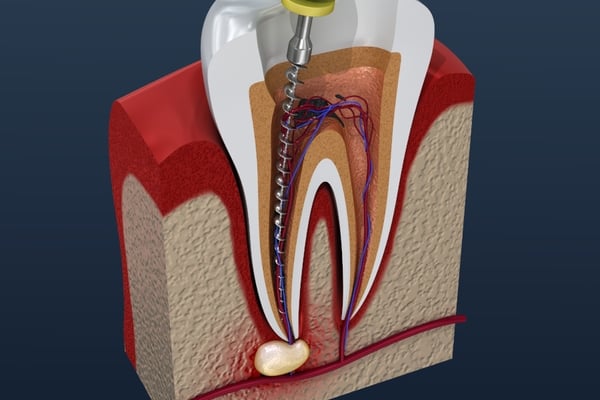
Are you scheduled for a root canal? If so, you may be feeling a bit anxious. Part of your anxiety could be because you don't know what to expect or don't realize how far this treatment has come in the last few decades. Even though significant advancements have been made in root canal surgery, there are still a few common misconceptions regarding this procedure that can prevent some people from having it done.
For example, there's the myth that it's better to have a tooth pulled than keeping it. Here's what you can expect from a root canal treatment, along with some considerations and warnings.
What Is a Root Canal?
When you hear the term "root canal", this refers to the soft tissue located within a tooth, containing a tooth's nerves. This tissue is mostly found in the roots of a tooth that's located under the gum.
Basically, root canals, known medically as a pulpectomy or a pulpotomy, are dental procedures for relieving dental pain and saving teeth. Most people require a root canal when the roots of a tooth become inflamed or infected.
After removing the pulp or damaged part of a tooth, a dentist cleans and disinfects the area and then fills and seals it with a rubber-like substance.
What about Pain and Discomfort?
One of the main questions most people ask when their dentists tell them they need a root canal is it it will be painful and/or uncomfortable. The actual root canal treatment is not painful.
The pain and discomfort that people feel is the result on an infected tooth instead of the root canal procedure. During the surgery, a dentist uses a local anesthetic, which numbs the tooth as well as the surrounding area.
Your dentist may recommend taking nonsteroidal anti-inflammatory drugs (NSAIDs) before your treatment as this can help in reducing postoperative discomfort.
Pain or discomfort after your treatment is generally the result of periradicular (covering the roots of teeth) tissue inflammation. This can be managed by using NSAIDs for inflammation and antibiotics to prevent infection. Sometimes, prescription medications are prescribed when over-the-counter drugs are ineffective.
How Long Does a Root Canal Filling Last?
- A root canal filling should be good for several years, provided it's done properly.
- However, you still need to have regular dental cleanings and exams, besides practice good dental hygiene, such as cleaning and flossing your teeth so that your mouth stays healthy.
- Keep in mind that, just as any other tooth, a root canal filling can become fractured, decayed or develop gum disease.
What Is the Average Cost?
- If you have dental insurance, check to see if it covers root canals.
- The cost for a root canal can depend on several factors, which include the complexity of a patient's tooth as well as whether the procedure is performed by an endodontist or dentist. It can also depend on the location of the patient.
- Without insurance, the average cost for a front tooth is from $300 to $1,500.
- For a bicuspid, a premolar or mid-mouth tooth, it's about $400 to $1,800.
- As for a back molar, the cost is slightly more, at about $500 to $2,000. This is because back teeth involve three or more canals.
- Emergency root canals can add to the cost by as much as $50 to $100 or even more.
How Many Appointments Are Needed?
- While some people need only a single appointment for a root canal treatment, others require two or more.
- If you need more than one visit, the first appointment will entail your dentist cleaning and shaping the root canal system.
- On the second appointment, he or she fills and seals the tooth.
- Typically, the two appointments are scheduled within a week apart.
Other Considerations and Warnings
- In most cases, a root canal procedure cost less than replacing a tooth.
- The fillings that dentists use today are considerably safer than those used in the past.
- To catch possible problems, schedule a dental appointment at least every six months.
- Once you've had a root canal treatment, you shouldn't be sensitive to hot and cold pain although you may have some temporary soreness or tenderness that should go away in a day or two.
- Don't overuse your tooth or place too much pressure on it until your dentist gives you the "green light". This means not biting into or chewing crunchy foods, such as nuts, carrots and hard candies.
- Rinsing out your mouth with salt water every three to four hours can promote a quicker healing.
- If you have any problems, don't hesitate to promptly contact your dentist.
Questions? Schedule an appointment with Charlotte dentist, Dr. William Linger. A root canal is one of my most common dental procedures. This treatment not only saves your teeth, but it can prevent needing bridges or dental implants in the future. Please contact us and learn more about our wide range of general and cosmetic dental treatments.



